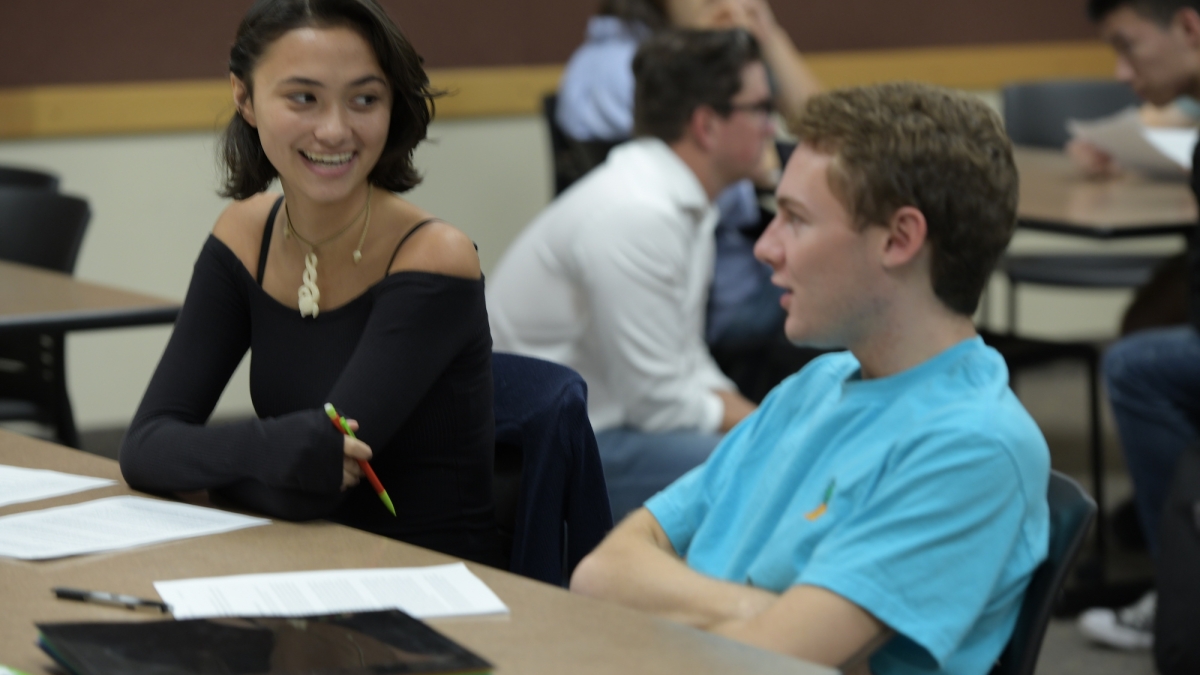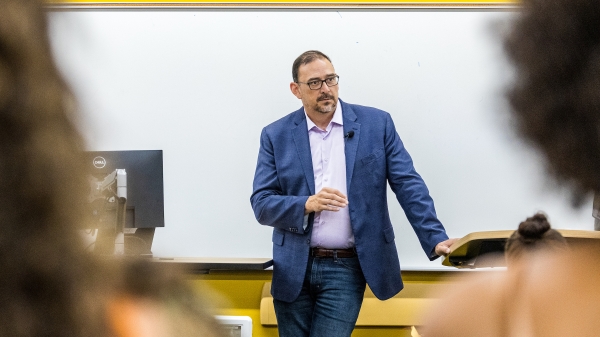ASU offers new master’s degree program in classical liberal education and leadership

Classical liberal education and leadership focuses on philosophy, politics, literature, ethics, history, mathematics and science.
Arizona State University's School of Civic and Economic Thought and Leadership has launched a new master’s degree in classical liberal education and leadership that will be accepting students for the fall 2020 semester.
“We’re excited to offer a liberal arts curriculum for mature learners that blends study of fundamental ideas about humanity with civic thought and preparation for leadership,” said Paul Carrese, director of the School of Civic and Economic Thought and Leadership.
“Leaders in civil society and public affairs need deeper ideas and judgment to cope with a very complicated 21st-century world, while those interested in classic ideas about the human condition should incorporate the challenges of being free, self-governing and serving as a leader,” Carrese said.
Classical liberal education and leadership focuses on philosophy, politics, literature, ethics, history, mathematics and science. The program combines theory and practice through the reading of classic texts with opportunities to strengthen pedagogical leadership skills.
This new program will be led by Colleen Sheehan, who was a professor of politics and director of the Ryan Center at Villanova University.
“The country is fragmented. America right now is unsure of herself, what we stand for, who we are as a people and what our future looks like,” Sheehan said. “I'm hoping we can be a part of the solution to move forward in a country and nation that promotes civic understanding and friendship. That's what the School of Civic and Economic Thought and Leadership is about.”
The courses in this degree are taught in the Socratic method, an active and engaging teaching method that Sheehan says is critical for learning.
“(The Socratic method) means students are not passive recipients of knowledge as if you could transfer it from one line to another,” Sheehan said. “You can get people to memorize something, but educating and learning is about wrestling with the ideas and thinking for yourself."
Sheehan compared the program’s learning style to that of the Lyceum, the ancient Greek philosophical debate school in ancient Athens home to names like Socrates, Plato and Aristotle.
“Classical liberal education and leadership’s lyceum aims to prepare the next generation’s ‘cultivators of the human mind’ and thoughtful civic leaders to meet the challenges ahead with foresight, integrity, prudence, and imagination,” said Sheehan, who answered some questions about the new degree program.
Question: What will students learn in this program?
Answer: The master's degree in classical liberal education and leadership prepares teachers, civic leaders, public servants and concerned citizens to think about the challenges of our time within the broader context of the abiding human questions, as well as to consider these questions for their own sake. Classical liberal education and leadership is an integrated, interdisciplinary course of study that is student-learning centered, employing the Socratic method of classroom dialogue. Classical liberal education and leadership is oriented to the classical, holistic pursuit of knowledge captured in the Aristotelian approach to education.
Q: What career opportunities are available for graduates of this program?
A: Classical liberal education and leadership prepares graduates for careers in teaching — in both basic and higher education — public service and political leadership. Given the interdisciplinary and classical character of the program, it will establish an educational foundation for any career in which a knowledge of human things and common good is highly prized, such as law, nonprofit philanthropy, public policy and public discourse.
Q: What kind of students should apply to this program?
A: This program is particularly suited to those who are interested in pursuing a genuine and rigorous course of study in classical liberal education. Those who are teaching or aspire to teach in classical education programs will find this degree a fitting and excellent choice of graduate study. Additionally, those who are interested in leadership careers, including within the realms of the civic, political, educational and military, will find the program’s lyceum to be an outstanding preparation in the study of the theory and practice of prudential judgment, strategic decision-making and the art of statesmanship.
More Law, journalism and politics

New report documents Latinos’ critical roles in AI
According to a new report that traces the important role Latinos are playing in the growth of artificial intelligence technology…

ASU's Carnegie-Knight News21 project examines the state of American democracy
In the latest project of Carnegie-Knight News21, a national reporting initiative and fellowship headquartered at Arizona State…

Arizona secretary of state encourages students to vote
Arizona Secretary of State Adrian Fontes looked right and left, taking in the more than 100 students who gathered to hear him…